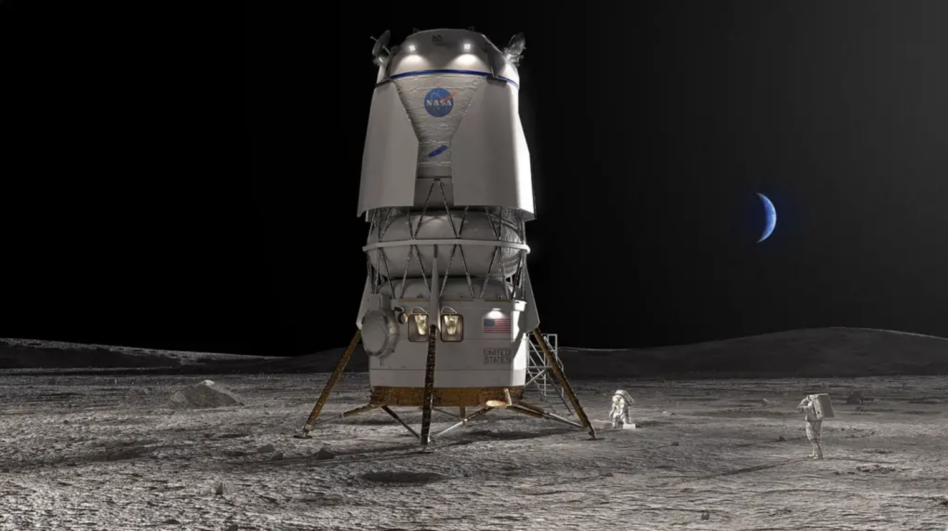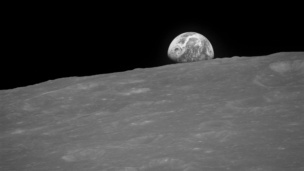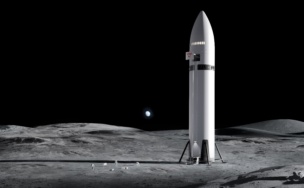Blue Origin will provide the second lunar lander for the Artemis program, NASA announced on Friday, giving Jeff Bezos’ company a major victory after losing out to SpaceX on the first lander award in 2021.
“An additional, different lander will help ensure that we have the hardware necessary for a series of landings,” said NASA chief Bill Nelson.
The Artemis program will now have two lander providers—SpaceX and Blue Origin—ensuring diversification and enough vehicles to keep up with the proposed mission cadence. The Starship lunar lander is currently slated to debut in 2025 on Artemis III, while the Blue Origin lunar lander will commence service no earlier than 2029 on Artemis V.
A hefty price tag: The total cost of Blue Origin’s lunar lander will be over $7B, with NASA contributing nearly $3.4B and Bezos’ company spending “well north” of that on its own.
Blue Origin’s lander
The hydrogen-fueled lunar lander, dubbed Blue Moon (not to be confused with the beer), will be 16 m tall and designed to fly on Blue Origin’s New Glenn rocket, which is expected to fly for the first time in summer 2024. Blue Moon will have a dry mass of 16 metric tons and 45+ metric tons when loaded with propellant.
- The spacecraft will be fully reusable and provide transport to and from the Lunar Gateway in the Moon’s orbit.
- Blue Moon will utilize a cislunar refueling space tug to transport propellant from LEO.
In addition to NASA services, Blue Moon will also offer commercial transport opportunities.
The team: Blue Origin formed a broad partnership with industry leaders, beating out Dynetics to win the contract. The Blue Origin team’s partnerships and their responsibilities consist of the following:
- Lockheed Martin: builds the cislunar transporter for refueling
- Draper: constructs the GNC navigation and simulation
- Astrobotic: makes the cargo accommodations
- Honeybee Robotics: builds the cargo offloading system
- Boeing: constructs the docking systems
Battle of the billionaires: The lunar lander contract heightens the rivalry between Elon Musk and Bezos. When NASA awarded Starship the first lunar lander contract in 2021, Blue Origin protested the award, leading to a public dispute between the two CEOs. Ultimately, a federal judge overturned the Blue Origin suit—but not before Congress directed NASA to award a second lander contract to fuel competition.
Now, both billionaire-led rocket companies are responsible for providing transport to the lunar surface for NASA’s return to the Moon.





